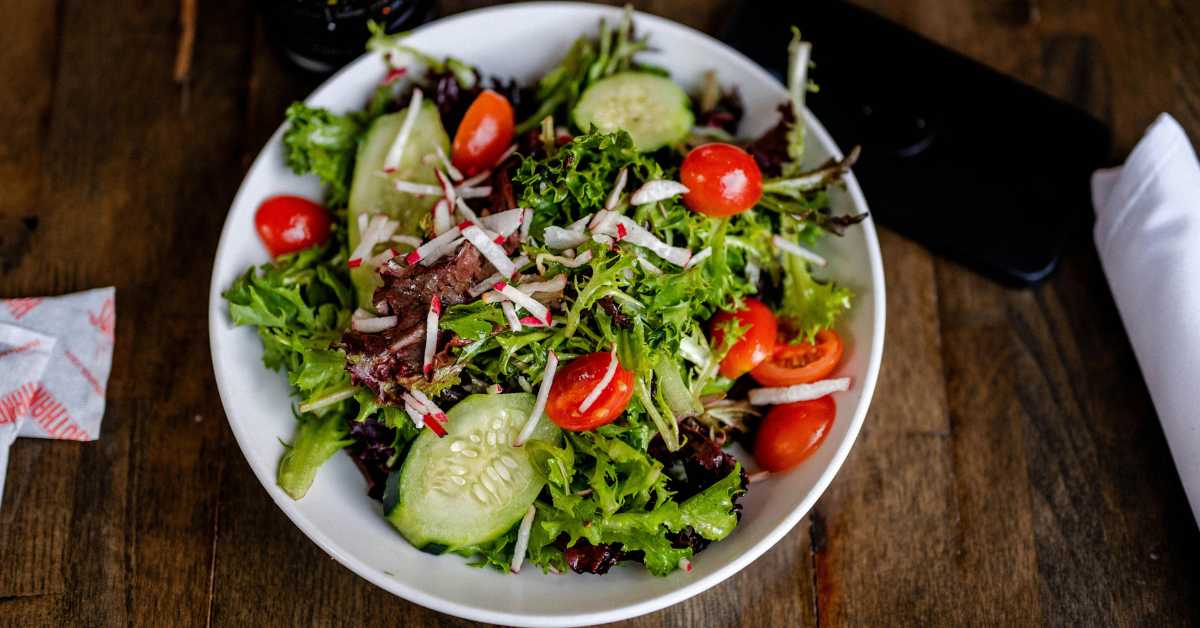In today’s rapid-paced global environment, it’s easy to overlook nutrients’ effect on our fitness and well-being. Often, people trust that important lifestyle modifications are required to achieve extensive upgrades. However, Lifestyle Nutrition emphasizes the power of small, attainable modifications that could result in super fitness benefits. By integrating moderate nutritional tweaks and easy habits, people can revel in a healthier way of life without feeling overwhelmed.
This article explores the idea of Lifestyle Nutrition and offers practical guidelines for meaningfully improving your each day nutrients.
What is Lifestyle Nutrition?
The core principle of lifestyle nutrition is incorporating nutrients into your daily habits without altering them. Unlike strict diets or temporary fitness fads, Lifestyle Nutrition specializes in building sustainable, healthy behavior that lasts. This approach involves prioritizing nutrient-dense meals, understanding your body’s needs, and making small modifications that collectively have a massive impact on your fitness.
With Lifestyle Nutrition, the goal isn’t to restrict or deprive yourself. Instead, it’s approximately coming across the way to make smarter meal picks you can stay with for a long time. Small steps, like choosing whole grains over refined ones or incorporating some servings of end results and greens into every meal, can bring about lasting alternatives without drastic measures.
Why Small Changes Are Effective in Lifestyle Nutrition
Small, incremental adjustments are simpler to stick with, and over the years, they add up to giant enhancements. Making small nutritional modifications can regularly help people avoid burnout or feelings of restriction that large changes can deliver. Rather than aiming for a whole overhaul of their eating habits, minor shifts will let them regulate gradually, making these adjustments more herbal and sustainable.
Another benefit is that small steps can create a ripple effect. For example, drinking more water can also enhance strength stages, which could then encourage you to transport more and make better meal choices. Each small exchange serves as a stepping stone to healthier behavior, ultimately creating a substantial distinction in your typical health adventure.

Benefits of Embracing Lifestyle Nutrition
Improved Physical Health
One of the most instantaneous advantages of Lifestyle Nutrition is stronger bodily fitness. Even minor nutritional modifications can lead to progressed strength levels, higher digestion, and greater solid blood sugar stages. Including whole ingredients, including lean proteins, fruits, and vegetables, no longer supports your body’s needs but reduces the likelihood of continual health problems.
Incorporating a balanced technique into nutrition can also improve immune function and help your body recover faster from infection or physical strain. The small, constant changes regularly lead to a stronger, more resilient frame.
Better Mental Clarity and Mood
Lifestyle Nutrition doesn’t just gain the body; it positively influences the mind. Nutrient-rich foods enhance intellectual clarity, focus, and normal temper. Small changes, like ingesting omega-3 fatty acids or leafy greens rich in folate, can increase cognitive characteristics and decrease signs and symptoms of tension or melancholy.
These enhancements in intellectual health can create a positive feedback loop, making it less difficult to maintain wholesome habits. When you feel mentally sharp and emotionally balanced, it’s simpler to commit to a lifestyle that prioritizes nutrients.
How to Start Making Small Changes for Big Nutritional Impact
Focus on Portion Control
Training thing management is one of the handiest methods to improve your diet. Often, people eat more than their bodies really want, which may result in pointless weight gain and sluggishness. Start by being conscious of serving sizes, especially for calorie-dense foods like oils, nuts, and grains. Use smaller plates or bowls to help you reduce portions without feeling disadvantaged.
Another useful tip is to pay attention to your body’s cues for hunger and fullness. Rather than completing a meal out of dependency, be aware of how your body feels. This method is one of the easiest ways to reduce calorie consumption without sacrificing any of your desired meals.
Choose Whole Foods Over Processed Options
Processed foods are handy but often lack crucial vitamins and contain additives, sugars, and bad fat. By deciding on complete ingredients—like fruits, veggies, entire grains, and lean proteins—you offer your body the vitamins it absolutely wishes. Gradually changing packaged snacks with clean fruit or a handful of nuts is an awesome start.
This alternative improves your nutrient consumption and reduces your exposure to potentially harmful components. The antioxidants, nutrients, and minerals protected in complete ingredients improve health and support many physical processes.

The Role of Hydration in Lifestyle Nutrition
Hydration is a cornerstone of good nutrients and is regularly disregarded in maximum food regimen plans. Staying thoroughly hydrated allows for digestion, stream, or even electricity degrees. Simple movements like ingesting a pitcher of water before food or wearing a water bottle can make a substantive distinction.
Adequate hydration additionally enables the modification of appetite, making it easier to distinguish between starvation and thirst. If you find it difficult to remember to drink water, try setting reminders on your cellphone or incorporating flavored water with herbal elements like lemon or cucumber to keep it exciting.
Incorporating More Fiber for Better Digestive Health
Fiber is critical for a wholesome digestive system and plays a vital role in Lifestyle Nutrition. High-fiber foods like oats, beans, vegetables, and complete grains help maintain the digestive tract’s easy functioning. Adding only a little more fiber to your weight loss program can prevent constipation, reduce cholesterol, and assist in maintaining a healthy weight.
Fiber continues you complete for longer, lowering the probability of bad snacking. To beautify your fiber intake without drastic adjustments, strive to include a side of leafy vegetables for your food or snack on culmination like apples and berries.
Balancing Macronutrients for Sustained Energy
Macronutrients—proteins, carbohydrates, and fat—are the key building blocks of our food regimen. Balancing the one macronutrient is key to sustained electricity and well-known health. For example, pairing carbohydrates with protein stabilizes blood sugar levels, keeping off strength crashes that come from sugary snacks.
Macronutrient Balance Tips:
- Include a supply of protein in each meal (e.g., eggs, beans, or fish).
- Opt for complicated carbs like complete grains over subtle carbs.
- Avocados, almonds, and olive oil are nutritious sources of fats.
- Protein, carbohydrates, and fat should be balanced at every meal.
- Eat nutrient-dense foods like yogurt with berries or apples with almond butter.
Small changes may make your diet more tasty and nutritious while balancing those vitamins.
Meal Planning as Part of Lifestyle Nutrition
Prepare for the week with meal planning to make healthy choices easier. Planning meals saves time, prevents impulsive choices, and ensures nutritional balance. Start with a few meals or snacks to gradually get dependent.
Having pre-planned food decreases reliance on speedy food or processed snacks, making it less complicated to stick to a lifestyle focused on nutrients. Plus, meal planning may be custom-designed to fit any agenda, from simple to more problematic meals.

Mindful Eating and Its Impact on Lifestyle Nutrition
Benefits of Eating Mindfully
Mindful eating involves enjoying each bite and giving attention to your hunger. Mindful eating helps you recognize fullness, reducing the chance of overeating. It lets you taste your meal, which may enhance your connection with eating.
How to Practice Mindful Eating
Put down the phone and the television; begin to dine. Embrace the meal for its inherent qualities, including its aromas, sensations, and flavors. Eating at a slower pace and relishing each mouthful may increase the enjoyment of food and reduce the likelihood of excess.
A Simple Table to Track Your Lifestyle Nutrition Changes
| Lifestyle Nutrition Habit | Simple Adjustment | Health Benefit | Frequency | Starting Tip |
|---|---|---|---|---|
| Increase water intake | Drink water before meals | Better digestion, energy | Daily | Keep a water bottle on hand |
| Add more vegetables | Include a side of greens | Boosts vitamins, fiber | Every meal | Try different types of salads |
| Choose whole grains | Swap white for whole grains | Improves digestion, heart health | Daily | Start with one meal a day |
| Practice portion control | Use smaller plates | Helps manage weight | All meals | Pay attention to hunger signals |
| Plan balanced snacks | Include protein + fiber | Sustained energy | Between meals | Prep snacks ahead |
The Importance of Regular Physical Activity in Lifestyle Nutrition
Lifestyle Nutrition is carried hand in hand with bodily interest. Exercise helps metabolism, builds muscle, and enhances temper, making it a critical part of a balanced way of life. Even short walks or stretches at some point in the day can make a considerable difference, especially when mixed with healthy eating.
Physical pastimes don’t have to be in-depth; a moderate technique works properly with Lifestyle Nutrition. Try simple activities like walking after food, stretching breaks throughout work, or engaging in an interest that involves movement.

Avoiding Sugary Beverages for Better Health
Sugary beverages are amongst the most important resources for empty calories and introduced sugars, which may derail efforts toward healthier ingesting. Substituting soda and sweetened drinks with natural teas or sparkling water can help control calorie consumption and avoid energy crashes.
Reducing sugary liquids is one of the fastest, most impactful changes you can make. If you crave taste, try adding slices of fresh fruit or herbs like mint to your water for a natural twist without added sugar.
Final Thoughts
Lifestyle Nutrition isn’t always about grand gestures; however, small, considerate changes that are healthy naturally into your everyday ordinary. You could revel in sizable fitness blessings without drastic efforts by specializing in achievable adjustments—like element manipulation, hydration, balanced macronutrients, and entire ingredients. Remember, the sum of those small steps genuinely makes a big distinction.
FAQs
How can I begin Lifestyle Nutrition?
Start by making minor adjustments, such as drinking more water or choosing complete meals over processed ones.
Is Lifestyle Nutrition suitable for anybody?
Yes, it’s a bendy approach that can be tailored to one-of-a-kind wishes, lifestyles, and nutritional possibilities.
How does hydration affect nutrients?
Staying hydrated supports digestion and energy and allows manipulation of appetite.
What are some easy high-fiber ingredients to include?
For fiber enhancement, try fruits, greens, entire grains, beans, and legumes.

